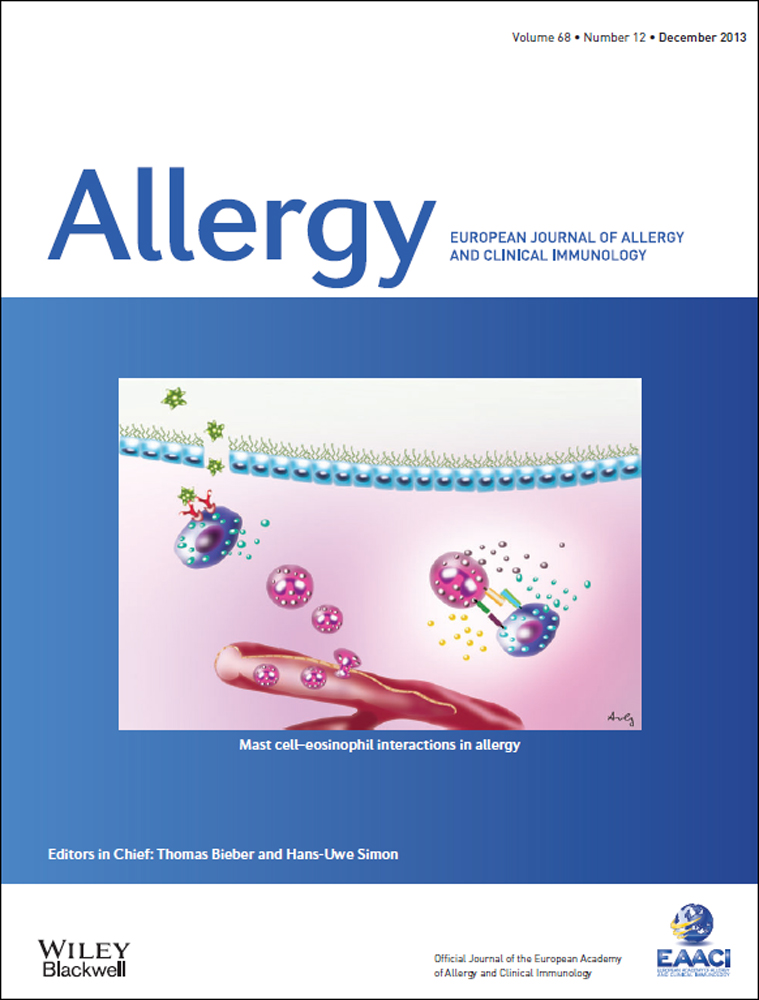Twenty four-hour helpline access to expert management advice for food-allergy-triggered anaphylaxis in infants, children and young people: a pragmatic, randomized controlled trial
Abstract
Background
Anaphylaxis is a life-threatening emergency. If promptly administered, adrenaline is potentially life-saving. Many food-allergic-children/carers are unsure when to use their adrenaline autoinjectors, contributing to a low quality of life and worse outcomes in the setting of an acute allergic reaction.
Objectives
The aim of this study was to assess the effectiveness of 24-hour telephone access to specialist clinical advice on disease-specific quality of life.
Methods
A pragmatic two-arm, parallel-group randomized control trial was conducted. Children/carers (<16 years) with food allergy, trained in adrenaline auto-injector use, were recruited from a hospital-based paediatric allergy clinic. Baseline disease-specific quality of life was ascertained using the validated Food-Allergy-Related Quality-of-Life Questionnaire (FAQLQ), either Parent Form, Child Form or Teenager Form depending on child's age. Participants were then centrally randomized for a 6-month period to 24-hour telephone specialist support line or to usual care. The primary outcome measure was a change in FAQL scores, at one and 6 months postrandomization, compared with baseline. The minimum clinically important difference (MCID) in score is 0.5.
Results
Fifty two children/carers were recruited. FAQL scores remained static in the control group across the three time points. Scores gradually improved in the intervention group, with a significant difference seen at 6 months (T1–T3 Mean difference = −1.5, (CI 0.87–2.25) P < 0.005] Follow-up questionnaires, 6 months after the intervention was removed, T4, showed sustained significant difference between the groups (control M = 3.0; intervention M = 1.1[t = −4.113, P < 0.05]).
Conclusion
The 24-hour helpline improved food-allergy-specific quality of life in children. Six-month intervention support resulted in sustained benefits for at least a further 6 months.




